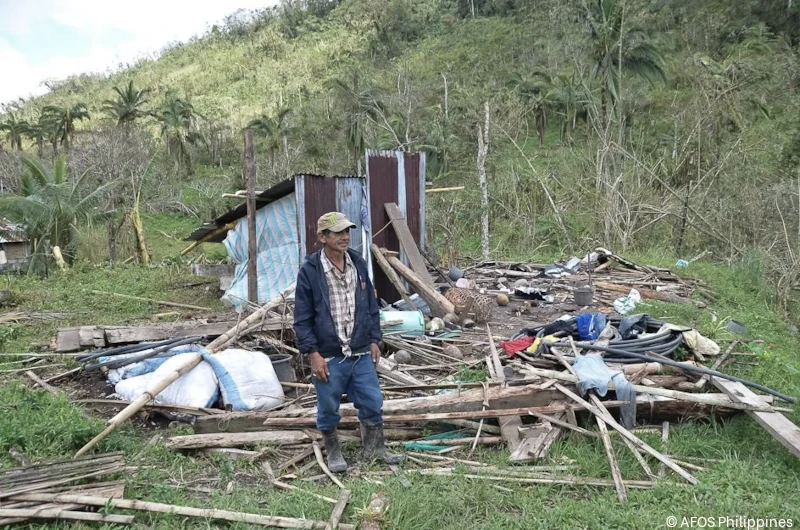Sustainable Fisheries and optimised Value Chains
Secure Livelihoods through the Promotion of Sustainable fishing in the Philippines
As one of the ten largest aquaculture-producing countries in the Global South, fishing is an important industry in the Philippines. We support the training of Business Membership Organisations (BMOs) in the provision of sustainable training, qualification and certification. In this way, we contribute to the creation of secure working conditions and also promote the sustainable organisation of value chains.
We are convinced that we can improve the income situation of families living from fishing and make it sustainable. The situation of micro, small and medium-sized enterprises (MSMEs) along the fisheries and food value chains is crucial for this.


Fishing Families struggle with Natural Disasters and Poverty
Although the Philippines is one of Asia’s emerging economies, nearly 20% of Filipinos live below the poverty line. The country’s geographical location brings with it a variety of natural disasters (including typhoons, floods, earthquakes and tsunamis). These cause serious economic damage every year.
However, fishing families are very often affected by poverty. They often suffer the most from the effects of natural disasters. Increasing overfishing and resource degradation (corals, mangroves, etc.), as well as a lack of knowledge about the use of modern technologies and food standards, inhibit their productivity. This is where AFOS project work comes in, which focuses on the promotion of sustainable fisheries in the Philippines.
What we have already achieved
- Fisheries and MSMEs in the region have improved their production and processing practices and are able to meet the relevant quality standards.
- Dual training programmes are institutionalised in the fisheries sector and help to improve the skills of trainees and companies.
- Market access for fishermen and MSMEs in the project has been expanded.
- Measures to protect natural resources are institutionalised in order to preserve the livelihoods of fishermen.
How we continue to advocate for Sustainable Fishing in the Philippines
The project is now in its second phase and focuses on four key areas of outcome: training for fishermen and MSMEs, dual training in the fisheries sector, market access and resource conservation.
- We qualify Business Membership Organisations (BMOs) in Central Visayas, which in turn provide services in the areas of dual training and certification, sustainable fisheries promotion and marketing.
- The BMOs are supported in developing new services for the value chain. For example, they will be empowered to participate in the implementation of dual training approaches in the fisheries and food sector based on the CCCI Assessment, Certification & Accreditation Service (ACAS). ACAS was founded as part of our K to 12 Plus project.
- The provision of alternative livelihood skills and the training of value-added skills in sustainable technologies and standards in sustainable fisheries and aquaculture contribute to income diversification. We are constantly working on the development, evaluation and certification of these skills.
- We empower BMOs to ensure collaboration between fishermen and their respective local government units (LGUs).



AFOS Partner Organizations in the Philippines
In addition to numerous partners from the industry, we work closely with the Chambers of Commerce and Industry of the regions of Bohol, Cebu and Siquijor . Together, we are committed to a fairer and more efficient economy. We improve the performance of businesses in the community and promote future-proof, sustainable fisheries in the Philippines.





















